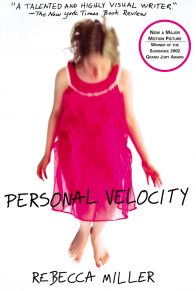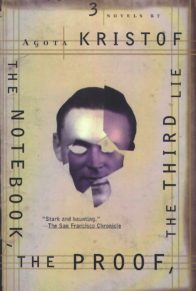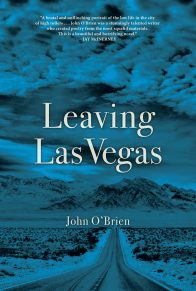I CAME TO COMALA because I was told my father lived here, a man named Pedro Páramo. That’s what my mother told me. And I promised her I’d come see him as soon as she died. I squeezed her hands as a sign I would. After all, she was near death, and I was of a mind to promise her anything. “Don’t fail to visit him —she urged—. Some call him one thing, some another. I’m sure he’d love to meet you.” That’s why I couldn’t refuse her, and after agreeing so many times I just kept at it until I had to struggle to free my hands from hers, which were now without life.
Before this she had told me:
—Don’t ask him for anything. Just insist on what’s ours. What he was obligated to give me but never did . . . Make him pay dearly, my son, for the indifference he showed toward us.
—I will, Mother.
I never thought I’d keep my promise. Until recently when I began to imagine all kinds of possibilities and allowed my fantasies to run free. And that’s how a whole new world started swirling around in my head, a world built on expectations I had for that man named Pedro Páramo, my mother’s husband. That’s why I came to Comala.
IT WAS DURING the dog days of summer, when the August winds blow hot, tainted by the rotting smell of saponaria flowers. The road rose and fell: “It rises or falls according to whether one’s going or coming. For the person who’s leaving, it rises; for the one who’s coming, it falls.”
—What did you say was the name of that town down there?
—Comala, señor.
—You sure we’ve already made it to Comala?
—I’m sure, señor.
—And why does it look so sad?
—It’s the times, señor.
I had imagined I’d see the place of my mother’s memories, of her nostalgia, a nostalgia of tattered sighs. She was always sighing, mourning the loss of Comala, hoping to return. But she never came back. Now I’ve come in her place. And I come bearing the same eyes with which she saw these things, because she gave me her eyes to see: “There, just beyond Los Colimotes pass, you’ll find a beautiful view of a green plain, with a bit of yellow from the ripening corn. From that spot you’ll see Comala, turning the land white, lighting it up at night.” And her voice was secretive, almost without sound, as if she were speaking to herself . . . My mother.
—And why are you headed to Comala, if I might ask? —I heard someone say.
—I’m going to see my father —I answered.
—Ah! —he said.
And we returned to our silence.
We walked downhill, listening to the cadent trotting of the burros. Our eyes swelling with fatigue in the intense August heat.
—He’s gonna throw you quite the party —I heard again from the voice of the man walking alongside me—. He’ll be glad to see someone after so many years with no one passing through.
Later he added:
—Whoever you are, he’ll be happy to see you.
The plain resembled a translucent pool in the pulsing heat of the sun, dissipating in the distance where a gray horizon took shape. And beyond that, a line of mountains. And even farther still, a never-ending distance.
—And what’s your father like, if I might ask?
—I don’t know him —I said—. I just know his name is Pedro Páramo.
—Ah! You don’t say.
—That’s the name I was given.
I again heard the “ah!” of the muleteer.
I had met up with him at Los Encuentros, where several roads came together. I was there waiting, until finally this guy showed up.
—Where you headed? —I asked.
—Down that way, señor.
—You familiar with a place called Comala?
—That’s where I’m going.
So I followed him. I walked behind trying to match his pace, until he seemed to notice I was following and slowed his stride. After that we walked side by side so close together our shoulders were almost touching.
—I’m also one of Pedro Páramo’s sons —he told me.
A flock of crows passed overhead through an empty sky, crying caw, caw, caw.
After dropping down out of the hills, we descended even farther. We had left the hot air above and were now sinking into a pure heat that had no air. Everything seemed to be waiting for something.
—It’s hot here —I said.
—It is, but this is nothing —responded the other guy—. Try to relax. You’ll feel it worse when we get to Comala. That place sits on the burning embers of the earth, at the very mouth of
Hell. They say many of those who die there and go to Hell come back to fetch their blankets.
—Do you know Pedro Páramo? —I asked.
I dared pose the question because I saw a hint of understanding in his eyes.
—Who is he? —I inquired again.
—Bitterness incarnate —he answered.
He took a swat at the burros, without any need to do so, since they were well ahead of us and focused on the descent.
I felt my mother’s portrait tucked away in my shirt pocket, keeping my heart warm, as if she too were sweating. It was an old photograph, worn along the edges; but it was the only one I’d ever seen of her. I had found it in the kitchen cabinet, in a clay pot full of herbs: lemon balm leaves, castilla blossoms, twigs of rue. I’ve kept it ever since. It was the only one. My mother was always opposed to being photographed. She said portraits were a form of witchcraft. And it seemed she was right, because hers was full of holes, like pinpricks, with one large enough to fit your middle finger through located right where her heart should be.
It’s the same photograph I have with me here, hoping it might help my father recognize me.
—Look at this —the muleteer says as he comes to a halt—. See that hill over there, the one that looks like a pig’s bladder? Well, just beyond that is the Media Luna. Now turn that way. You see the top of that hill? Look at it. Now turn and look this way. See that other hilltop you can barely make out for being so far away? Well, that’s the Media Luna from one end to the other. As they say, every bit of land as far as the eye can see. And all that ground is his. The thing is, our mothers pushed us into this miserable world laid out on the ground on petates even though we were sons of Pedro Páramo. And the funniest part is he’s the one who took us to be baptized. That’s got to be what happened to you too, right?
—I don’t recall.
—The hell you say!
—What’s that?
—I said we’re almost there, señor.
—I can see that. But what came through here?
—A roadrunner, señor. That’s what they call those birds.
—No, I was asking about the town. It seems so alone, as if abandoned. As if no one were living here.
—It doesn’t just seem that way. That’s how it is. Nobody lives here.
—And Pedro Páramo?
—Pedro Páramo died years ago.















